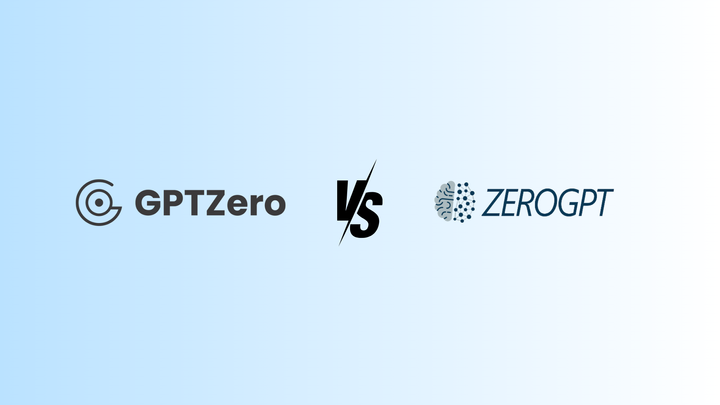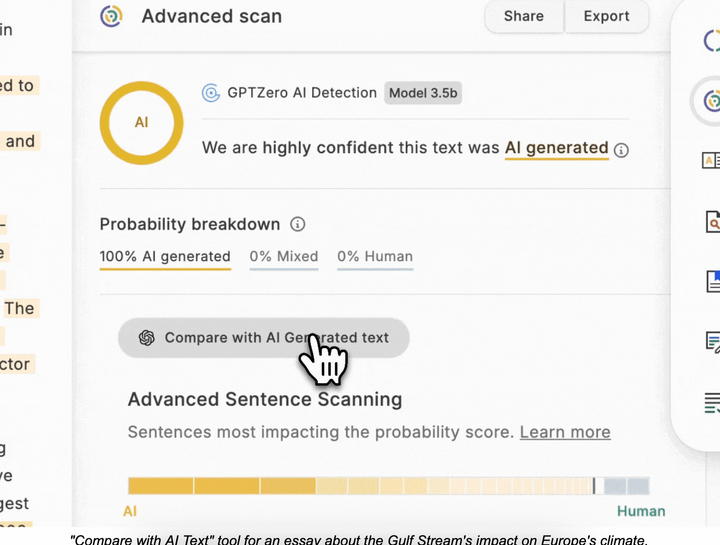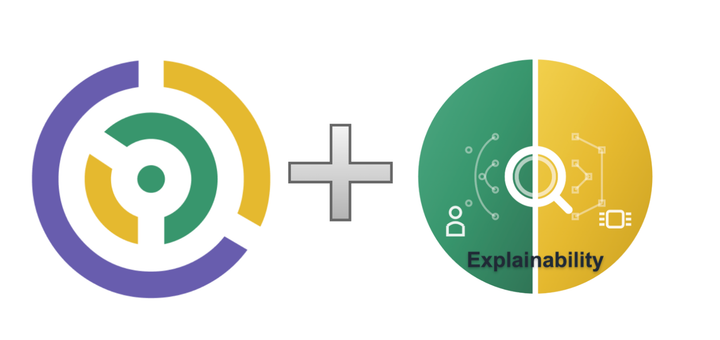GPTZero versus ZeroGPT: What's the difference?
What's the difference between AI detection tools named GPTZero and ZeroGPT? Here’s what you should know about each to make an informed decision.

Let’s face it: it’s getting harder and harder to tell what’s been written by humans, and what’s been created by AI. This is where tools like ZeroGPT and GPTZero come in – but which is better for what you need? Also, there’s an important distinction between the origins of each tool, which is worth knowing before you make your decision.
Overview of GPTZero
GPTZero was the original AI detection tool, developed by a team with deep AI expertise. From the very beginning, it has been a leading offering widely used by institutions and content creators. GPTZero’s algorithms are always being updated to detect the latest AI-generated patterns and keep up with ever-evolving generative AI technologies.
Strengths of GPTZero
- Advanced detection algorithms: GPTZero’s algorithms are designed to catch even the most subtle of AI-generated text, making it preferable for those seeking a high accuracy level
- Detailed reports: GPTZero offers users more detailed analysis and breaks down sections of text to make it extremely clear where there is AI-like phrasing or structure.
- Broader use cases: It is popular in academic circles but is also widely used in professional environments, namely auditing corporate or published content.
Limitations of GPTZero
- Complexity: If you only need a quick and simple answer, GPTZero’s detailed reports and options can be overwhelming.
- Higher costs: The advanced detection features come with higher price tags for premium users, which could be limiting for some.
- Response times: As its analysis has more depth, GPTZero’s processing time can be slightly slower, especially with extensive documents.
Overview of ZeroGPT
ZeroGPT is a copycat of GPTZero that launched after the popularity of GPTZero. It has an ad-support model, and prioritizes a quicker, basic approach to whether or not a text may have been AI-generated.
Strengths of ZeroGPT
- User-Friendly interface: ZeroGPT is simple to use. You just paste your text and then it’ll give you a percentage showing how likely it is to be AI-generated.
- Great for quick checks: Particularly helpful if you’re looking for a fast answer without extra details.
- Affordable options: It has a free version, although you need a paid plan for more in-depth results.
Limitations of ZeroGPT
- Limited features: ZeroGPT lacks advanced features like detailed breakdowns of flagged text sections.
- Accuracy on longer texts: The accuracy of ZeroGPT can decrease with longer text inputs, which may be an issue for analyzing long documents like research papers.
- Credibility issues: After GPTZero’s launch, ZeroGPT quickly followed with a suspiciously similar name and a misleading tagline.
What’s the difference between GPTZero and ZeroGPT?
Here are some factors to consider when making the decision between ZeroGPT and GPTZero.
1. Accuracy
Accuracy is obviously the most critical factor for any AI detection tool, which becomes more difficult as AI-generated content becomes more sophisticated. GPTZero leads in accuracy with its advanced algorithms and detailed reporting, making it the better choice if you need precise results. Based on this investigation (as well as other independent tests), ZeroGPT’s accuracy results are much worse.
2. User experience
ZeroGPT is all about simplicity: you paste your text and get a score, and there are no extra clicks required. GPTZero offers more depth, which may be less user-friendly for those looking for a quick fix – but ultimately provides a more thorough analysis.
3. Reporting depth
If you need detailed breakdowns, GPTZero is the winner as it gives in-depth reports and specific flagging of text sections that seem to be AI-generated. ZeroGPT focuses on keeping things surface-level – giving a clear overall probability but not as much when it comes to section-specific details.
4. Cost and accessibility
Both tools offer free access and their paid plans differ in price and scope. GPTZero’s premium plans come at a higher price but with a large variety of features, like customized reports and bulk content analysis. ZeroGPT’s paid options are more affordable but come with fewer functions.
5. Business model
ZeroGPT’s business model relies on ads so that you can access the tool for free, although the ads can be distracting. GPTZero offers a cleaner user experience with free as well as subscription options (the paid version comes with advanced features).
Which tool is best for my job?
Best for educators
For those in education needing an immediate (but not necessarily accurate) response, ZeroGPT may be the more accessible option due to its straightforward interface and pricing. However, for those needing high accuracy, especially on longer academic papers, GPTZero’s capacity for complexity might be the better choice.
Ideal for businesses and content creators
Content creators and businesses could prefer GPTZero, as it provides deeper insights into content origins and detailed reports that are helpful when it comes to maintaining corporate standards or brand integrity. ZeroGPT is great for quick checks but could be missing the depth some businesses need for thorough auditing.
Top choice for large organizations
Large organizations might find GPTZero’s extensive features and reporting super valuable, as it allows for sophisticated detection on a wide range of documents. The higher price point is likely manageable within larger budgets, as an investment for ongoing content verification.
A closer look at the copycat issue
It is worth remembering that ZeroGPT launched soon after GPTZero and arguably has attempted to piggyback off GPTZero’s launch success. Multiple news sources including SCMP and Yahoo News accidentally credited ZeroGPT when reporting on GPTZero’s accomplishments.
Specifically, ZeroGPT falsely claimed “Millions of users trust ZeroGPT’s detector” – however, as a brand-new tool, it had no major user base, which made this an untrue statement clearly aimed at borrowing GPTZero’s credibility.
GPTZero, on the other hand, has been built with a commitment to transparency, trustworthiness, and a mission around preserving what’s human. ZeroGPT’s tactics seem to be more about capitalizing on GPTZero’s credibility instead of creating its own.
Summary
GPTZero is the original AI detection tool and is continually refined to maintain the highest industry standards. While ZeroGPT can be used for fast, simple checks, GPTZero gives more in-depth reports that better meet the needs of larger organizations or those requiring high accuracy like education institutions.
Choosing GPTZero means choosing quality over cutting corners, particularly if integrity and detailed insights are top concerns.


